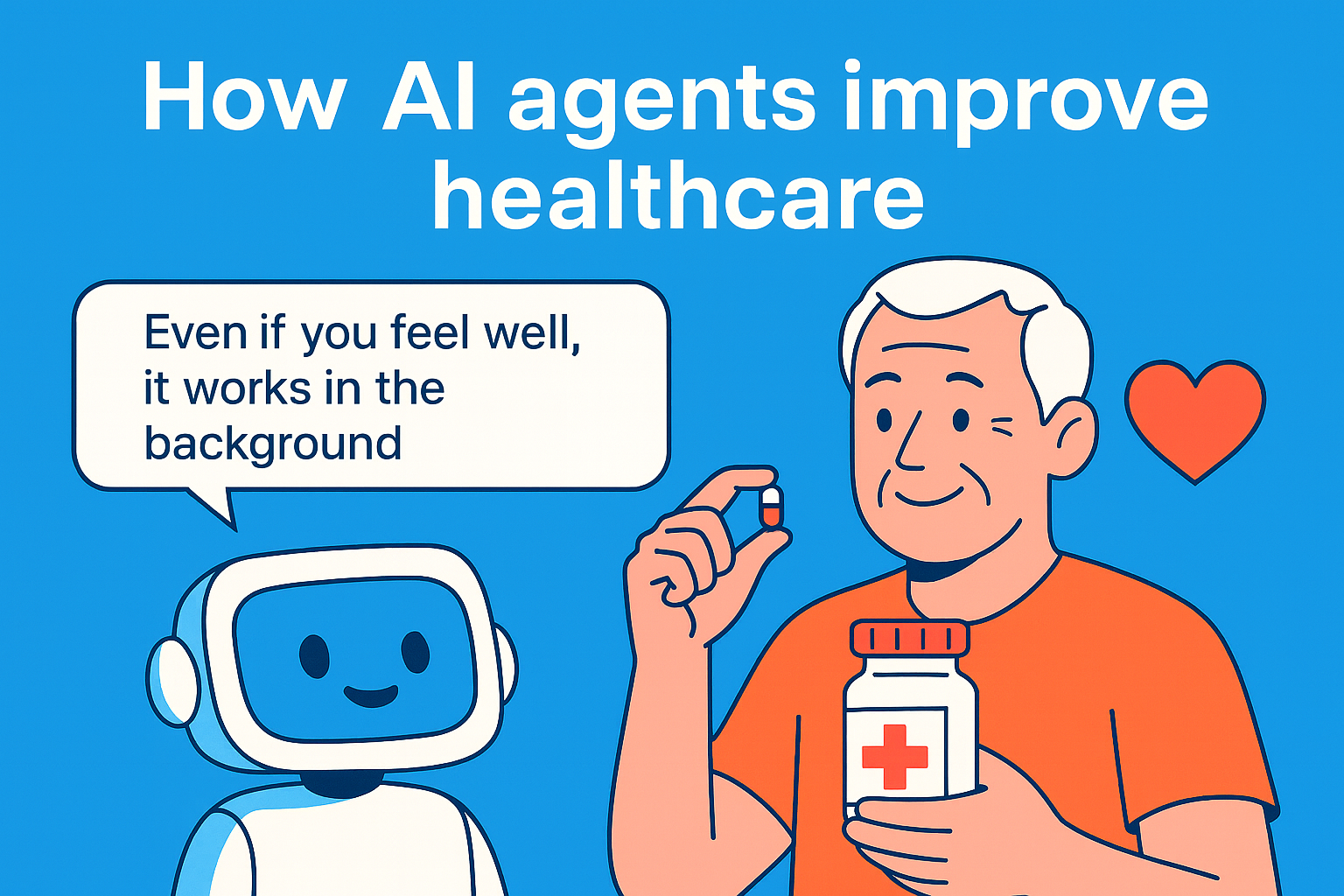One of the biggest challenges in healthcare is low patient adherence to treatment.
Patients forget to take their medication, skip follow-up appointments, and ignore important recommendations.
Sometimes it’s out of fear. More often — simply because they don’t understand why it’s necessary.
AI chatbots, like those built on the EvaHelp platform, can change this trend — gently, systematically, and at scale.
Why do patients “fall off the path”?
And yet consistency and engagement are critical for chronic and serious conditions.
What can AI chatbots do?
✅ 1. Explain prescriptions in plain language
"This medication reduces the risk of another heart attack by 30%. Even if you feel fine, it’s working in the background."
💬 The patient better understands why it’s needed, which means the likelihood of sticking to the regimen increases.
✅ 2. Answer anxious questions
"I’m feeling a bit worse — what should I do?"
"Is it okay to skip one day of medication?"
🧠 The chatbot can detect signs of concern and provide accurate, reassuring responses — or immediately forward the message to a doctor.
✅ 3. Provide emotional support
"You’ve followed your treatment plan for 10 days straight — that’s amazing!"
🎯 Even short messages of encouragement can boost motivation — especially in oncology, diabetes, and long-term rehabilitation.
Where is this especially important?
Why is EvaHelp suited for this?
Conclusion
AI chatbots are not a replacement for treatment.
They are a reliable companion for the patient, one who doesn’t forget, doesn’t tire, and is always ready to explain and support.
For chronic illnesses, such a companion can be the deciding factor between “I’m staying on treatment” and “I’ve given up.”
Want to try it in action?
Patients forget to take their medication, skip follow-up appointments, and ignore important recommendations.
Sometimes it’s out of fear. More often — simply because they don’t understand why it’s necessary.
AI chatbots, like those built on the EvaHelp platform, can change this trend — gently, systematically, and at scale.
Why do patients “fall off the path”?
- Too many instructions, nothing is clear
- No symptoms — so they think they can skip treatment
- Not used to maintaining discipline
- No emotional support
And yet consistency and engagement are critical for chronic and serious conditions.
What can AI chatbots do?
✅ 1. Explain prescriptions in plain language
"This medication reduces the risk of another heart attack by 30%. Even if you feel fine, it’s working in the background."
💬 The patient better understands why it’s needed, which means the likelihood of sticking to the regimen increases.
✅ 2. Answer anxious questions
"I’m feeling a bit worse — what should I do?"
"Is it okay to skip one day of medication?"
🧠 The chatbot can detect signs of concern and provide accurate, reassuring responses — or immediately forward the message to a doctor.
✅ 3. Provide emotional support
"You’ve followed your treatment plan for 10 days straight — that’s amazing!"
🎯 Even short messages of encouragement can boost motivation — especially in oncology, diabetes, and long-term rehabilitation.
Where is this especially important?
- Cardiology: secondary prevention after a heart attack
- Oncology: strict adherence to treatment plans, support during remission
- Diabetology: daily monitoring, habits, discipline
- Palliative care: emotional support + logistics
Why is EvaHelp suited for this?
- Supports complex scenarios without coding
- Can upload any files and guidelines
- Works on websites and in apps
- Provides analytics to see who is falling behind or dropping out
Conclusion
AI chatbots are not a replacement for treatment.
They are a reliable companion for the patient, one who doesn’t forget, doesn’t tire, and is always ready to explain and support.
For chronic illnesses, such a companion can be the deciding factor between “I’m staying on treatment” and “I’ve given up.”
Want to try it in action?
